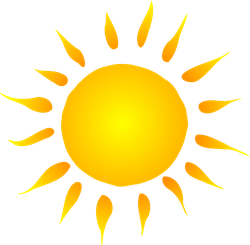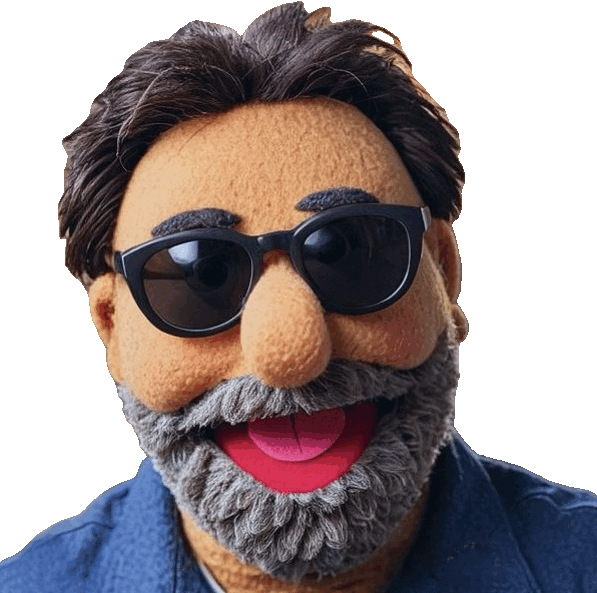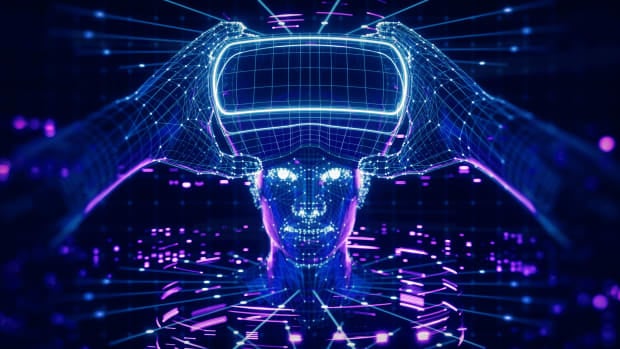I would imagine it was harder to get information on topics as you would’ve had to buy/borrow encyclopedias to do.
Were there proprietary predecessor websites?
Tell me about the dark ages!
One word: Encarta.
This.
“Don’t just copy and paste from Encarta” was commonly recited by my teachers when I was younger
I’m a little bit younger than you, so for me, it was used Wikipedia as a starting source, but do not reference it. Find your own information. We just used Wikipedia to familiarize ourselves with a topic and the terms that we would then have to actually look up and source other sites.
Encyclopædia Britannica also used to have a version released on DVD.
I remember when this came out, blew my mind. 1 cd vs a couple hundred kg worth of huge analogue encyclopaedia books.
Remember the Mindmaze game in Encarta?
Three thousand this 👆
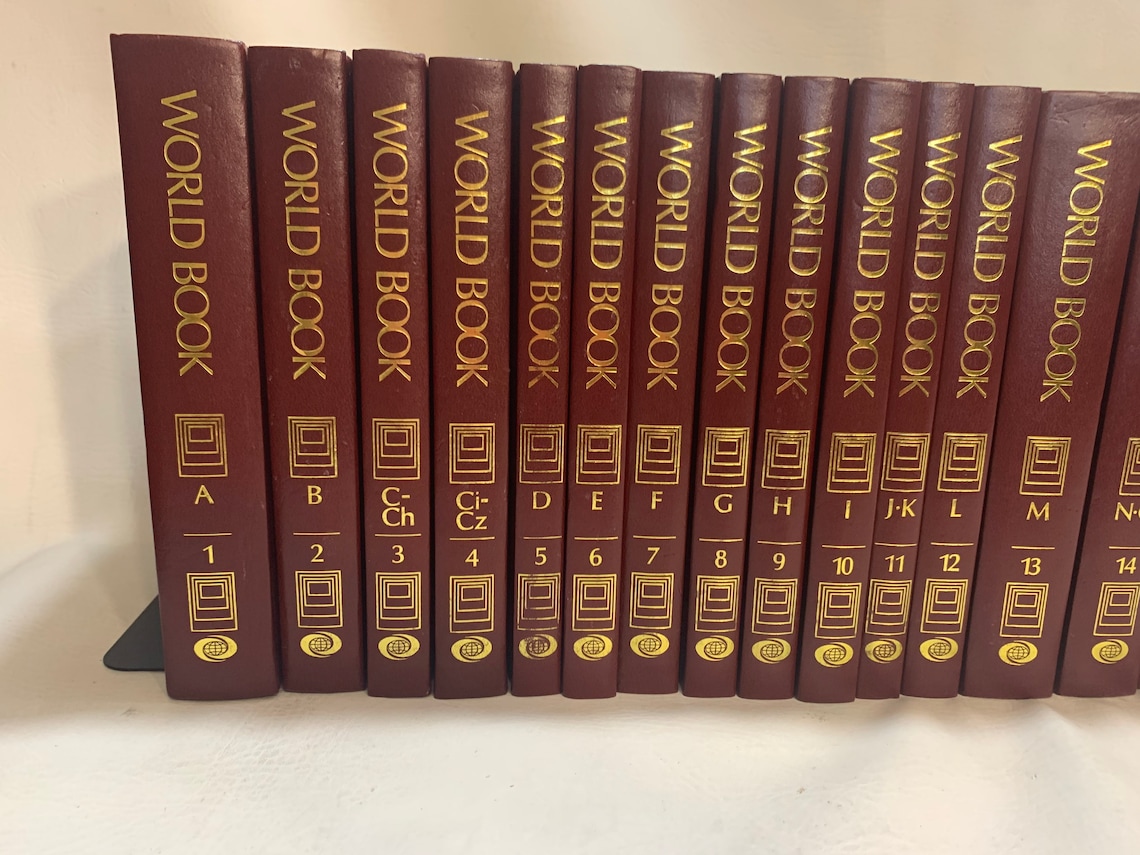
Edit: Apparently you can still order an updated print edition of the World Book Encyclopedia for the low price of $1,259.00.
Arguments at the dinner table were solved by an exasperated FINE, I’ll get up and get the encyclopedia just to prove you wrong
Also, we had Encarta. It wasn’t online, but on a CD-ROM so you could view it digitally compared to the dozens of hefty books
deleted by creator
We didn’t have encarta either. We would break out the encyclopedia
And any school project started with the encyclopedia and then a trip to the library for further research.
When I learned about Wikipedia it was awesome.
This refers to Google instead of Wikipedia, but I think this cartoon still applies. 🤣
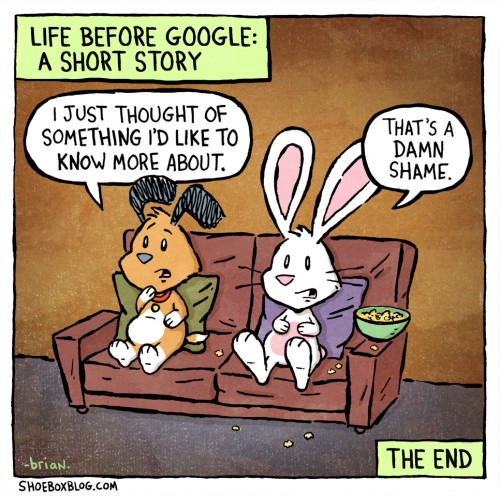
This sums it up. That cool song you would like to know the name or artist? Bad luck if it wasn’t popular. Where does x idiom come from? Wait until you’re at home/the library.
You would have many of these unresolved questions for years, until some solved itself fortuitously.
That cool song you would like to know the name or artist?
You’d ask the guys at the record store, ofc.
We had this thing called a library. With books.
Everybody’s like “Encarta” but before CD-ROMs etc, we had massive ass sets of encyclopedias. You’d actually have an encyclopedia subscription so they could send you errata for stuff that changed over time. Sort of like paper DLC for reality.
It sucked.
But pre-Internet it was fun to sit around and flip through the encyclopedias/dictionaries and read stuff. If you were lucky you’d find something sex-related.
This unlocked a childhood memory! I forgot that my parents once randomly let door to door salemen in to sell us this crazy large set of books. I think my parents were desperate because I was awful at school and somehow thought someone who didn’t try would now do so because I have all the information I needed… I feel bad, but I never used them once, a giant waste of money.
Lol. We had a giant set of kids Britannica’s that my folks got from a door to door salesman. I wonder if that was the primary vector for encyclopedias.
The set I grew up on was https://en.wikipedia.org/wiki/Encyclopædia_Britannica#1974–1994
I enjoy the “firestorm of criticism” bit. And
On 9 March 1976 the US Federal Trade Commission entered an opinion and order enjoining Encyclopædia Britannica, Inc. from using: a) deceptive advertising practices in recruiting sales agents and obtaining sales leads, and b) deceptive sales practices in the door-to-door presentations of its sales agents
You parents would just tell you something and you assumed it was true until you learned years later they where just winging it with bullshit.
You could argue about who was right about some obscure fact all night long, or come up with your own creative theories.
Nowadays, in less than a minute, someone will look it up, killing the conversation.I had a friend who would just make shit up to try to win arguments.
Hi, it’s me, your friend.
Now you’re just making shit up.
You say that like it’s a bad thing but I LOVE to kill conversations with citations. “Here’s an article from the 90s where Trump talks up Epstein. Sounds like they were buds after all!”
In the long, long ago times we had these things called libraries where books were checked out and accessible by using a card. Finding out factual information could take a bit of time depending on how obscure it was, but librarians were very helpful in finding things.
Otherwise stuff was mostly passed on by word of mouth and people tended to believe whoever said stuff with the most confidence. So like today’s social media, but slower and mostly in person.
I grew up in the 90s, so we had Encarta for most of the time I needed an encyclopedia.
It also wasn’t uncommon to have a (partial) set of encyclopedias at home. You could buy them, one or more volumes at a time, over the phone or occasionally from door-to-door salespeople. We also had an old set from the 60s that we inherited from my grandmother.
It also wasn’t uncommon to have a (partial) set of encyclopedias
“The big book of answers” as it was (jokingly) referred to in my childhood home. It was kept near the dinner table to settle arguments. It never settled them
We also had a world book encyclopedia from the 1950s that I used for my elementary school projects in the 90’s. Very occasionally I’d notice something or of date, but overall it was fine.
I re read the entry on “lightning” and the half-page about “tornadoes” I don’t know how many times. And it was fun to flip through a random volume looking for good pictures.
Let me tell you about borrow return policy at libraries and the associated fines for late returns and how to find something using the dewey decimal classification system. Fun times!
https://en.m.wikipedia.org/wiki/Dewey_Decimal_Classification
https://www.guinnessworldrecords.com/world-records/largest-library-book-fine-paid
Just random webpages that you took at face value because there’s no way someone can publish misinformation on something as big and sophisticated as this internet thing.
“The Computer says it’s true!”
Mostly you either went without knowing stuff, or you had to go to the library. I knew a couple of wealthy folks who had their own sets of encyclopedia at home which could cost thousands of dollars.
lol all these other replies in the thread talking about having encyclopedias at home. That was some rich family stuff.
Most people went to the library or just listened to whomever said what they remembered most confidently.
Encarta for the computer was a thing but, from what I remember, it was barely helpful. I guess it’s possible that my family had a cheap version. In my experience the best I could hope from it was to start where I should research at the library.
People used to call the Reference Desk at their local public library to ask a question and get an answer.
In retrospect, that Encarta had its moment and MS didn’t realize that they could have just turned it into a website before Wikipedia made it entirely redundant is a major loss. It could have been a for-profit staple like Facebook, but nope.
FWIW, I am looking at the encyclopaedia my family owned before the Internet. It’s still here on my shelves, along with other collections of books in bulk. People would show up to your door and sell you these sometimes, and it wasn’t always a scam. It served us well.
There was a trivia game show over here when I was a kid where the final round included a very obscure question (think “what was the name of the cousin of Stalin that was a film director in the 80s” or whatever) and were given ten minutes and an encyclopaedia to look it up. It was considered very hard and most episodes it resulted in failure.
You could ABSOLUTELY resurrect that format by cutting the time significantly and giving people access to Wikipedia. That’s easy money right there.
